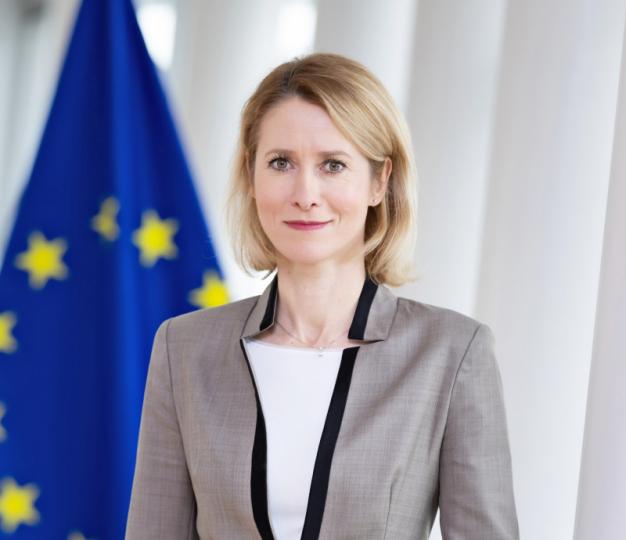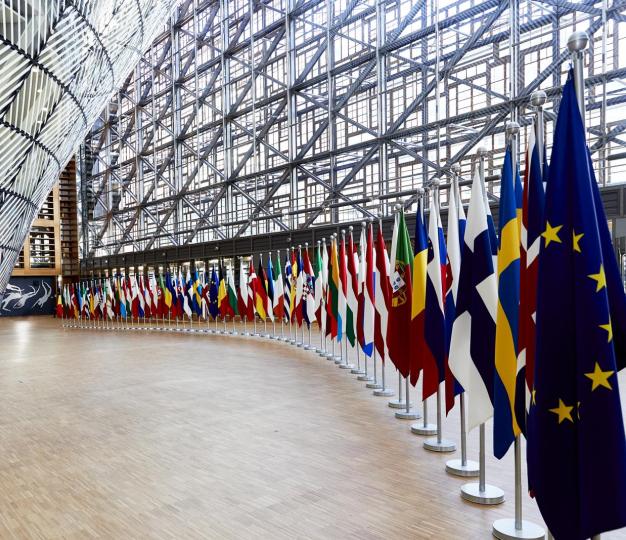High Representative / Vice President
The combination of these roles is to ensure the consistency and coherence of EU activities in the world and ensure they do not conflict or overlap.
Navigate the topic
What does the High Representative / Vice-President do?
This comes as a result of many responsibilities it entails:
- overall steering of the Union’s Common Foreign and Security Policy, including the Common Security and Defence policy. The High Representative contributes with proposals to shaping of the common foreign and security policy and ensures implementation of the decisions adopted by the European Council and the Council;
- building consensus between the EU member states and their respective priorities, including through chairing meetings between EU foreign ministers, defence ministers, trade and development ministers;
- operational conduct of EU missions and operations deployed as part of the Common Security and Defence Policy (CSDP). EU currently has more than 5,000 staff in 18 military and civilian missions and operations across the world;
- ensuring consistency and coherence of the EU's external action. The HR/VP is in charge, within the Commission, of coordinating other aspects of the EU's external action (e.g. trade, development, neighbourhood policy and humanitarian aid);
- representing the Union on issues relating to the common foreign and security policy. The HR/VP engages in political dialogues with third parties on behalf of the Union and presents the EU’s position in international organisations (e.g. UN, NATO) or negotiations (Iran Deal, Belgrade-Pristina Dialogue);
- attending regular meetings between EU leaders in the European Council;
- regularly updating the European Parliament on foreign policy and security issues;
- representing the EU at international meetings, such as the opening of the United Nations’ General Assembly;
- leading the EU’s diplomatic network of some 144 EU Diplomatic Representations around the world;
- heading the European Defence Agency and the EU Institute for Security Studies
On 1 December 2024, Kaja Kallas was appointed as High Representative /Vice President. Follow the link to learn more about HR/VP Kaja Kallas. Using the links below you can:
- Follow the HR/VP on X: @kajakallas
- Follow the HR/VP on Facebook: Kaja Kallas
- Follow the HR/VP on Instagram: kajakallas
- Follow the HR/VP on Bluesky: @kajakallas.bsky.social
Who appoints the High Representative / Vice-President?
- The European Council, which comprises the heads of state or government of all EU member states, appoints the HR/VP through a 'qualified majority' vote.
- The President of the Commission must be in agreement with the decision.
- The High Representative also holds the role of Vice-President of the European Commission, a body voted on by the European Parliament before taking office.
- The Commissioners are appointed for a five-year term, which is renewable and which coincides with the five-year mandate of the European Commission.
History of the HR/VP role
The role of 'High Representative for Common Foreign and Security Policy' was created by the Treaty of Amsterdam, which entered into force in 1999.
A decade later, the Treaty of Lisbon expanded the role, adding significant new responsibilities. Called from that point onwards the 'High Representative of the Union for Foreign Affairs and Security Policy', the post was also extended to include the role of Vice-President of the Commission.
On the same day that the Treaty of Lisbon took effect – 1 December 2009 – the expanded position of High Representative/Vice-President was officially inaugurated and the first person to hold the position – Catherine Ashton – started her mandate.
Former High Representatives
Josep Borrell
2019-2024

High Representative of the Union for Foreign Affairs & Security Policy/Vice-President of the European Commission. Spain's Josep Borell was the third HR/VP. Follow the link to read an archive of his Window on the World Blog.
Follow the link to find an archive of the Josep Borrell page on the EC site.
Federica Mogherini
2014-2019

High Representative of the Union for Foreign Affairs & Security Policy/Vice-President of the European Commission
Italy’s Federica Mogherini was the second HR/VP to be appointed.
Catherine Ashton
2009-2014

High Representative of the Union for Foreign Affairs & Security Policy/Vice-President of the European Commission
The role was created under the Lisbon Treaty and the UK's Catherine Ashton was the first HR/VP to be appointed under the new Treaty.
Javier Solana
1999-2009

High Representative for the Common Foreign and Security Policy, Secretary General of the Council of the European Union.
The role was created under the Treaty of Amsterdam and Spain's Javier Solana was appointed to this post by the European Council.


